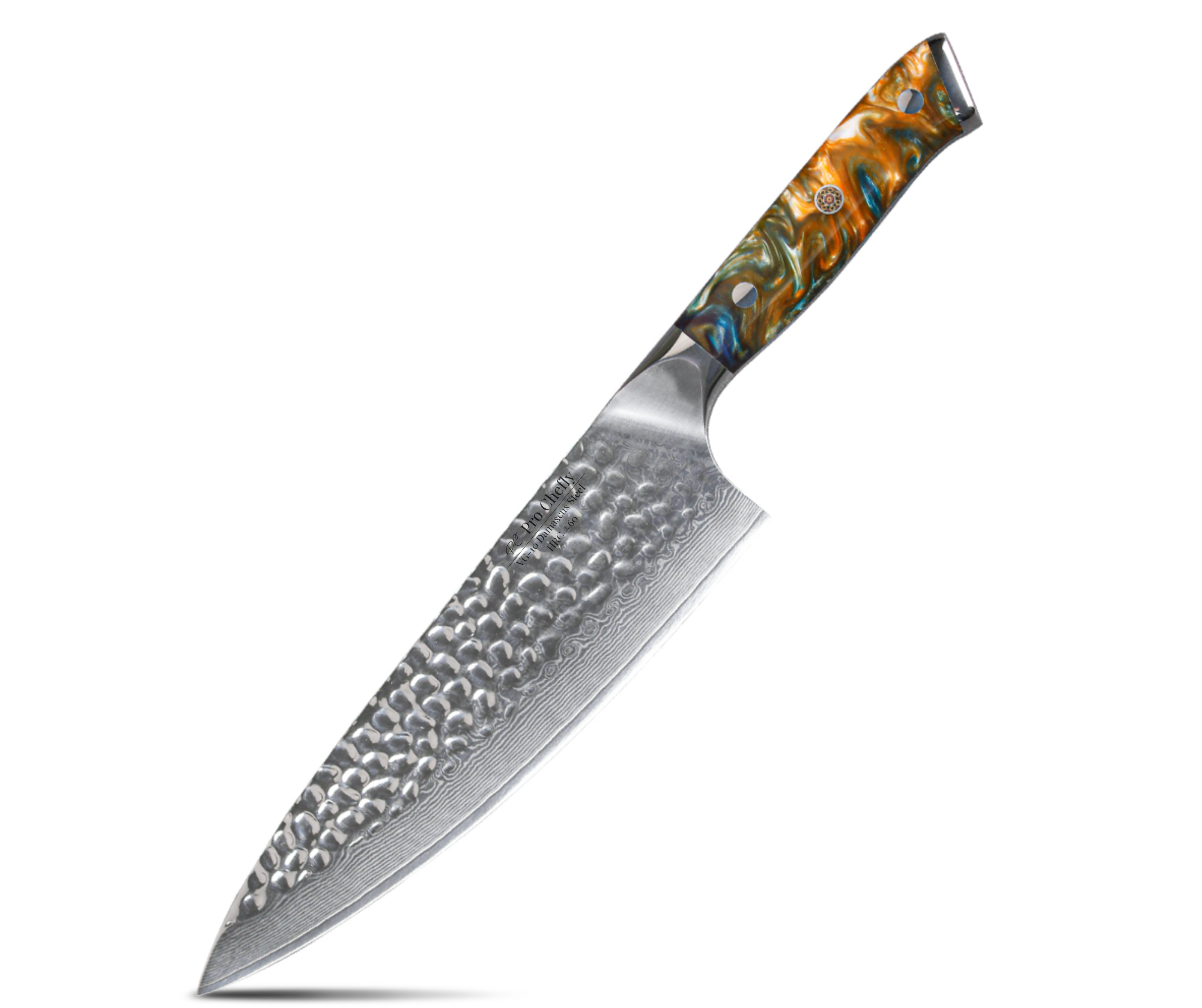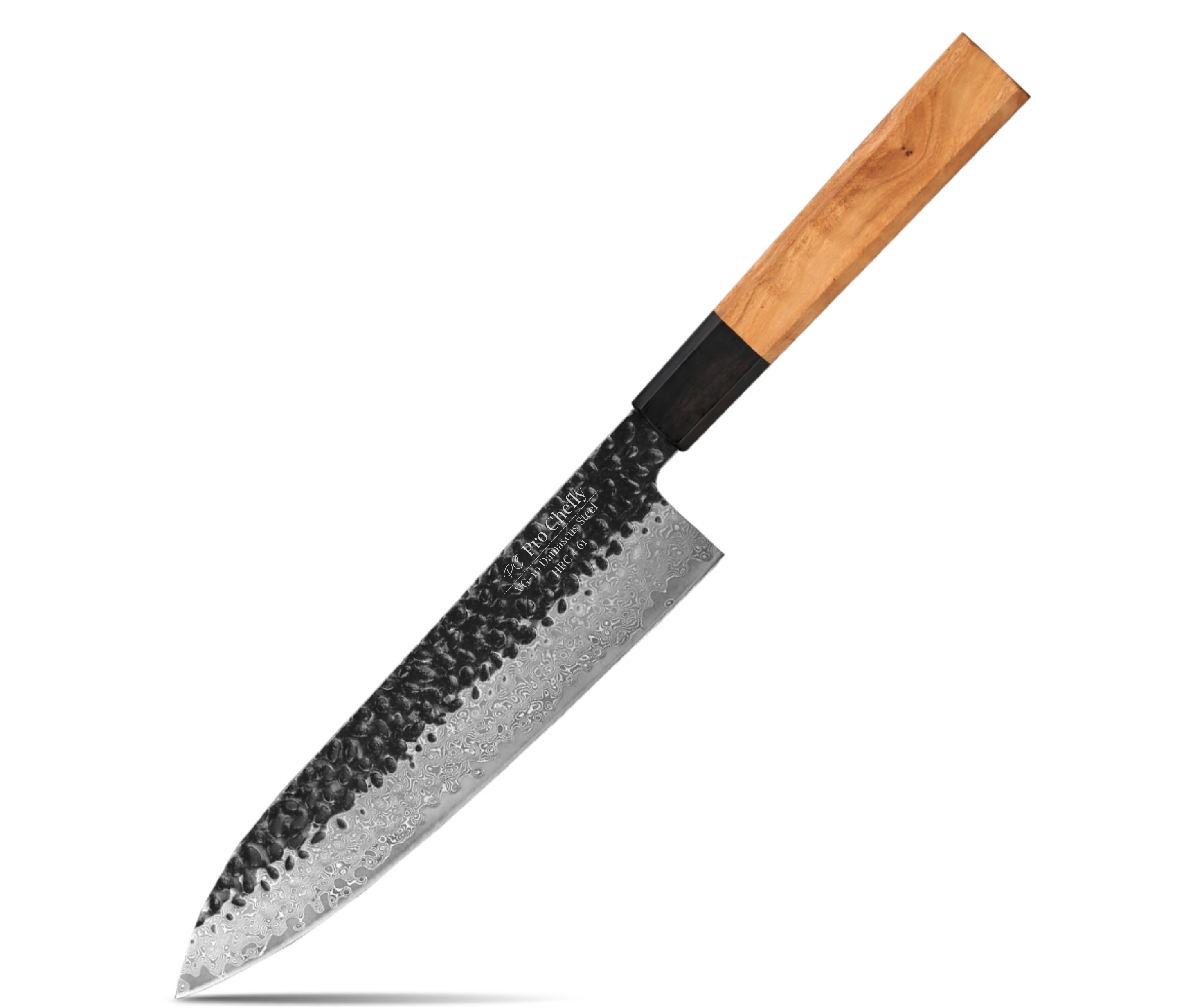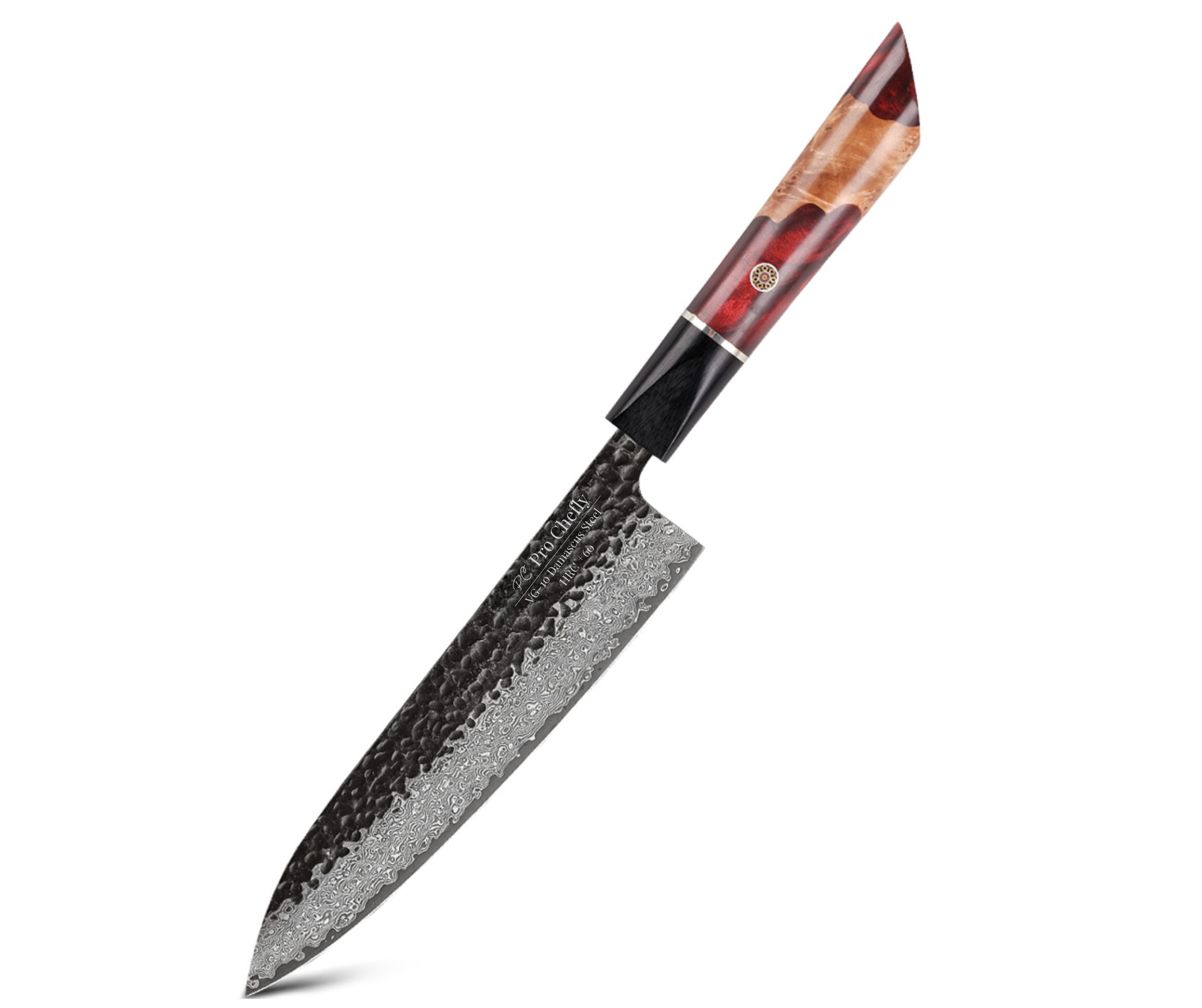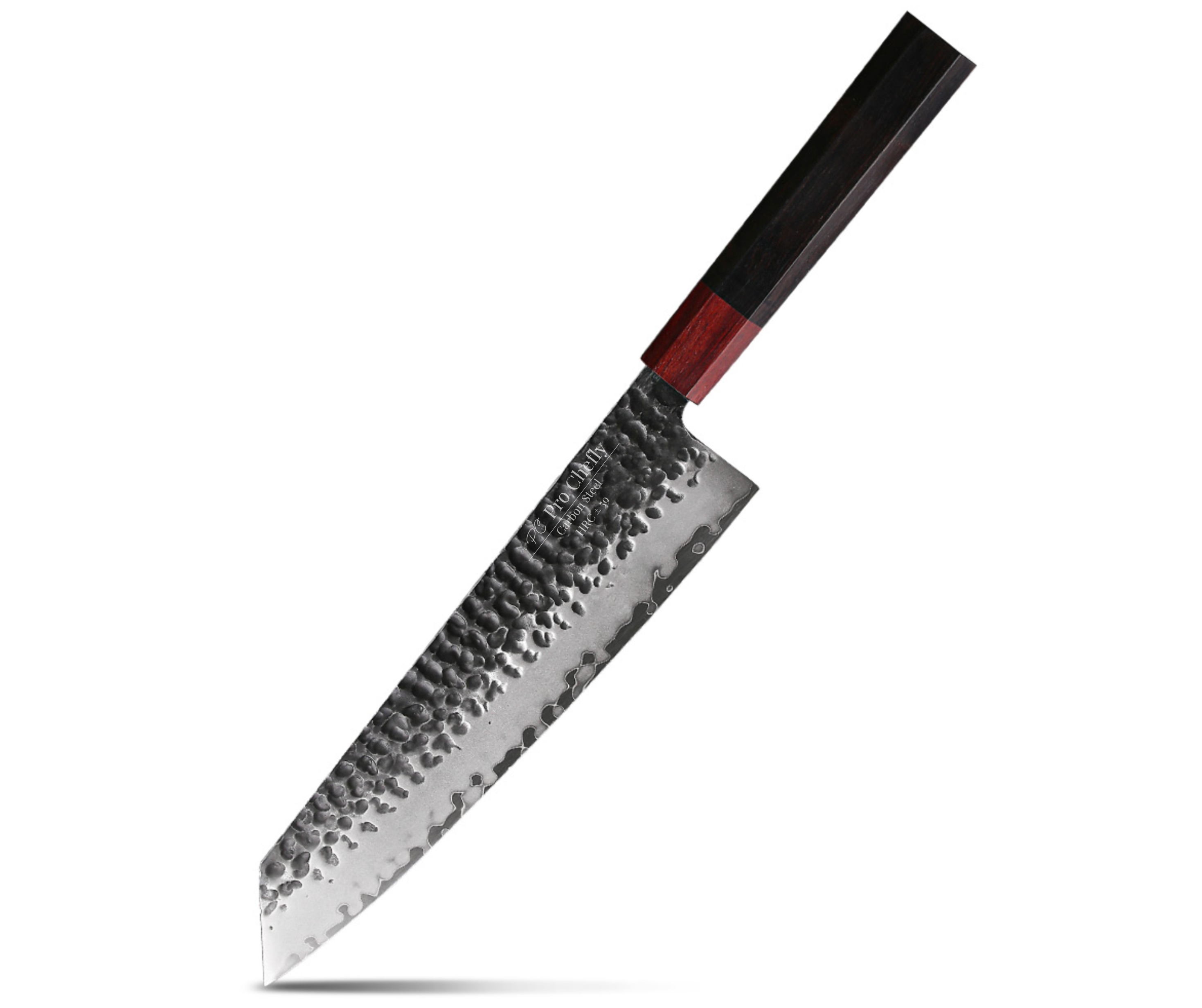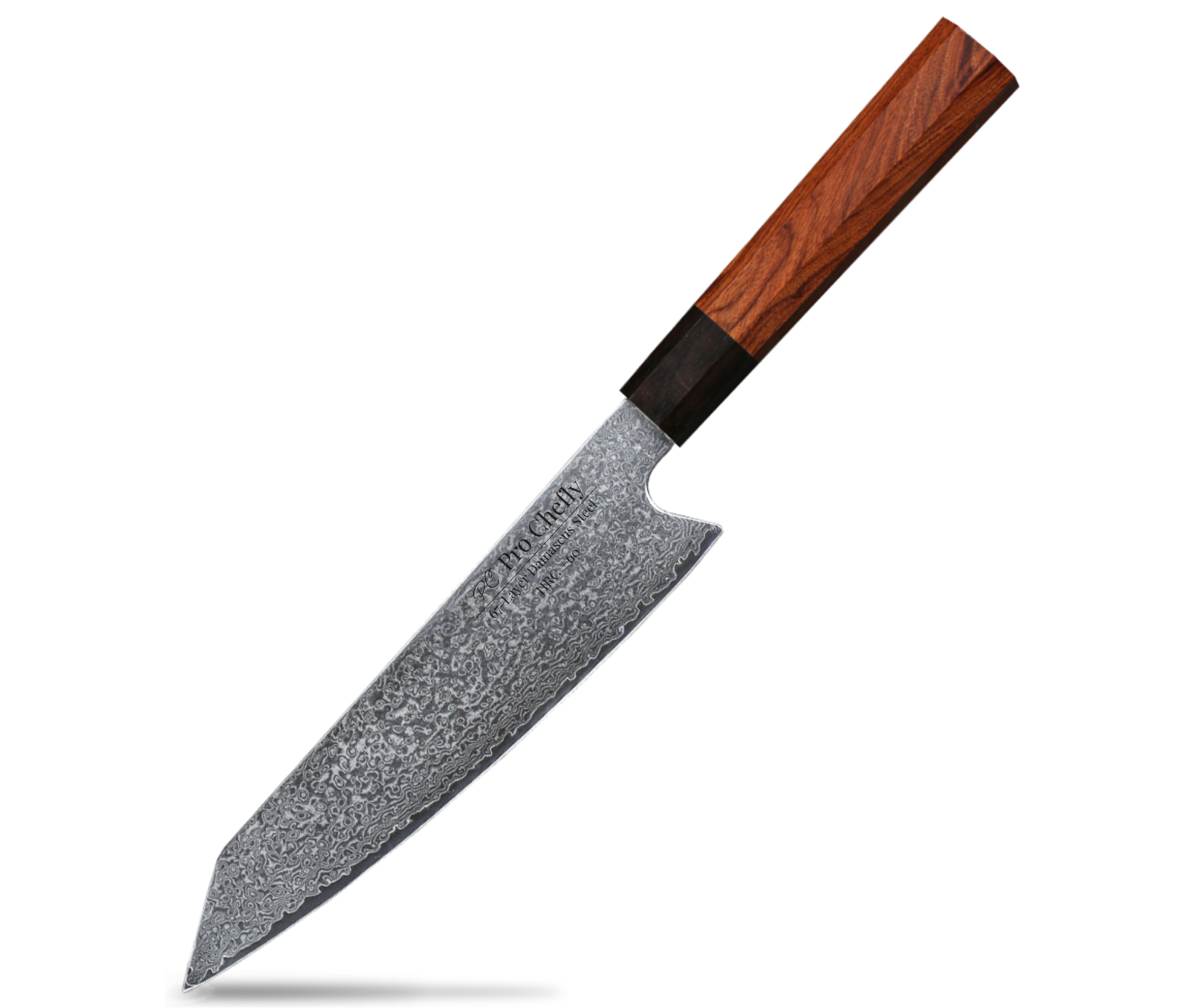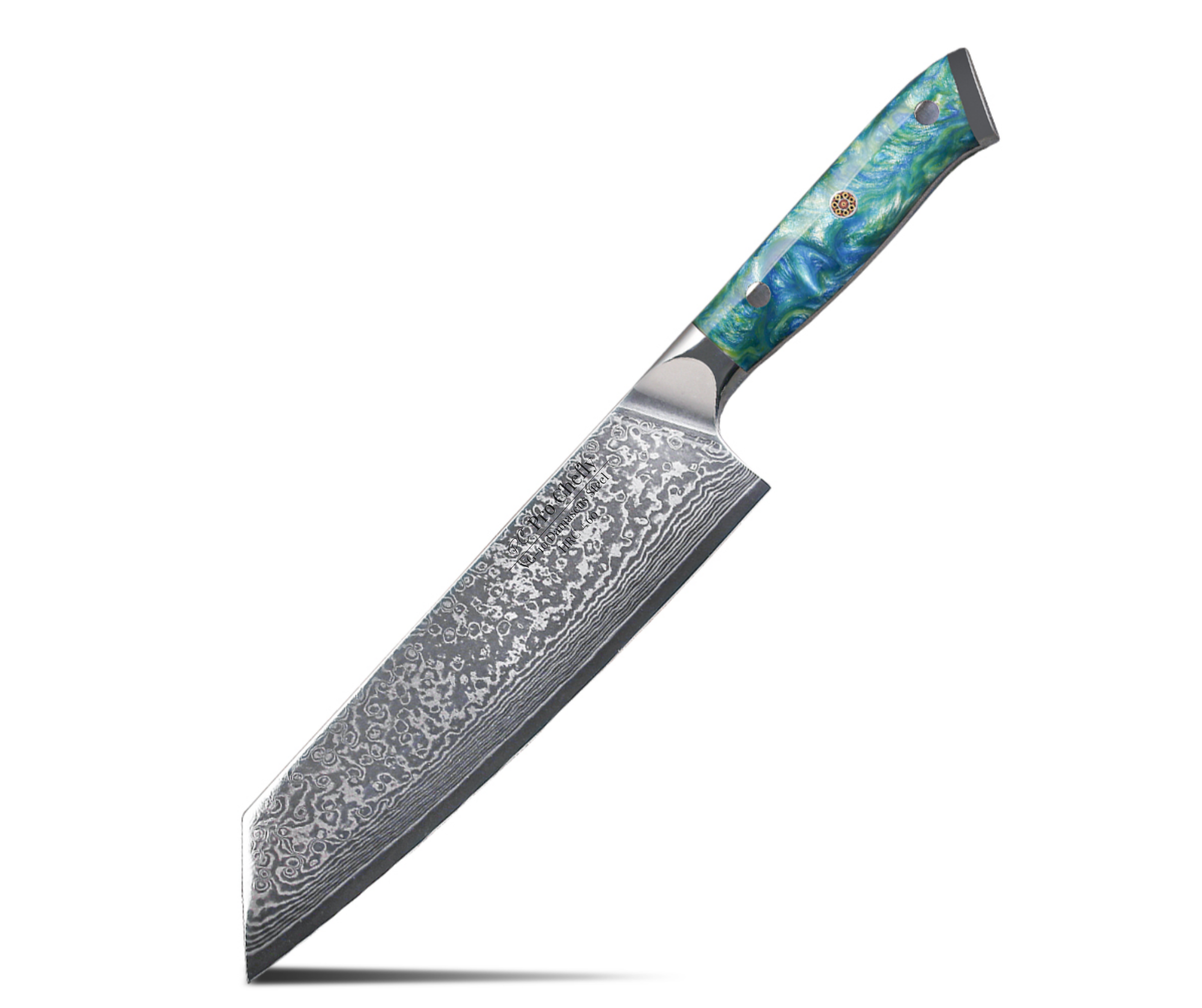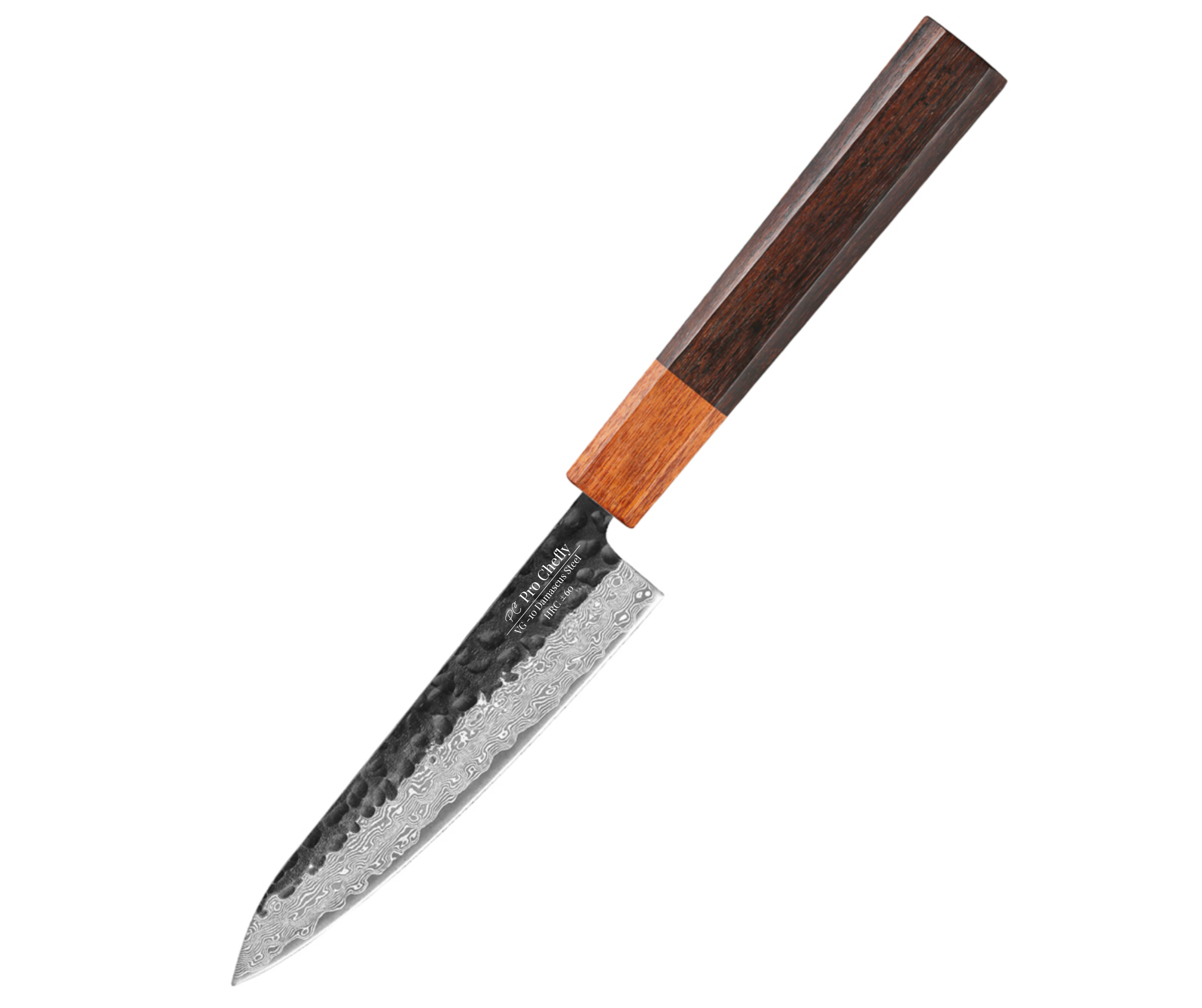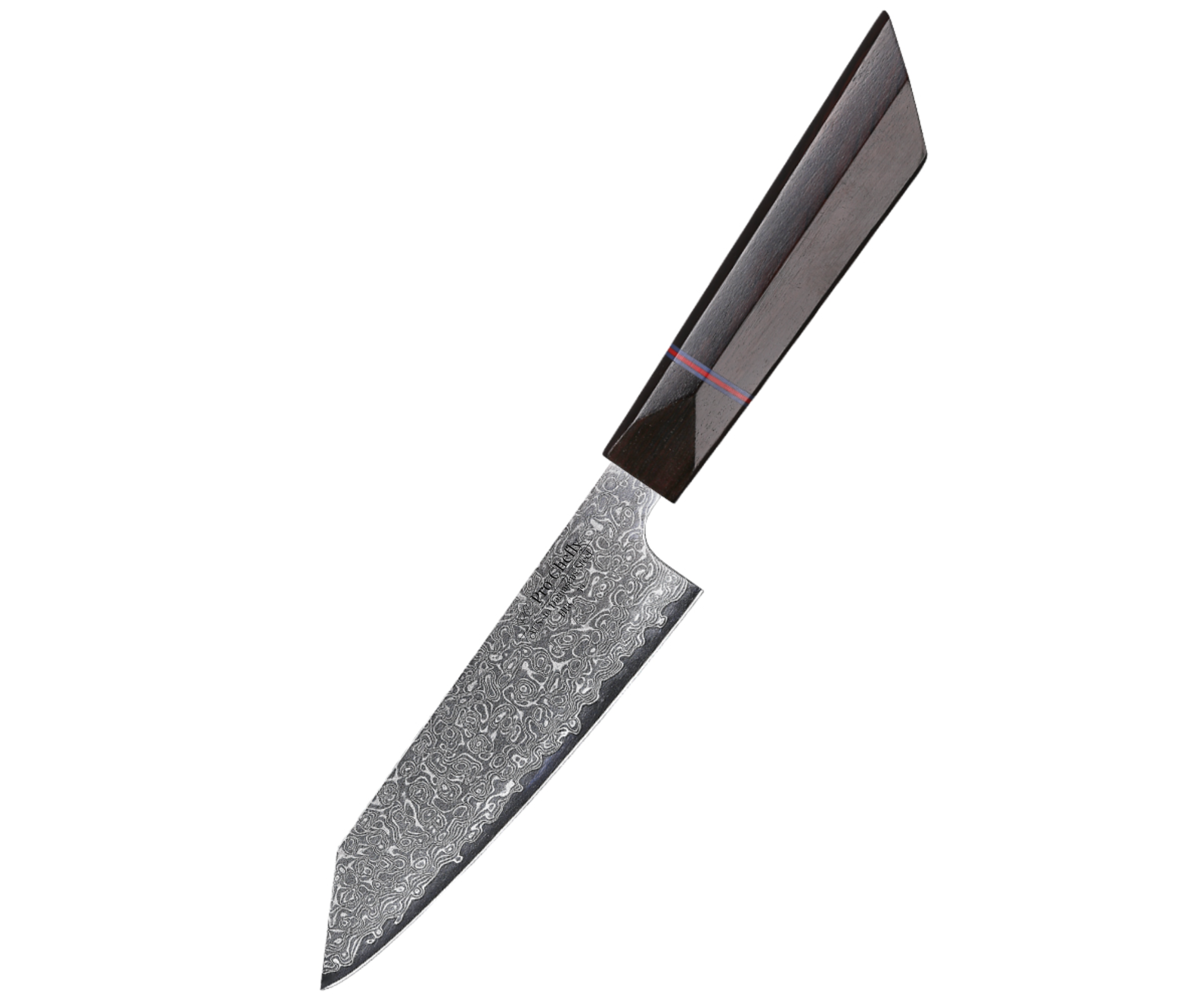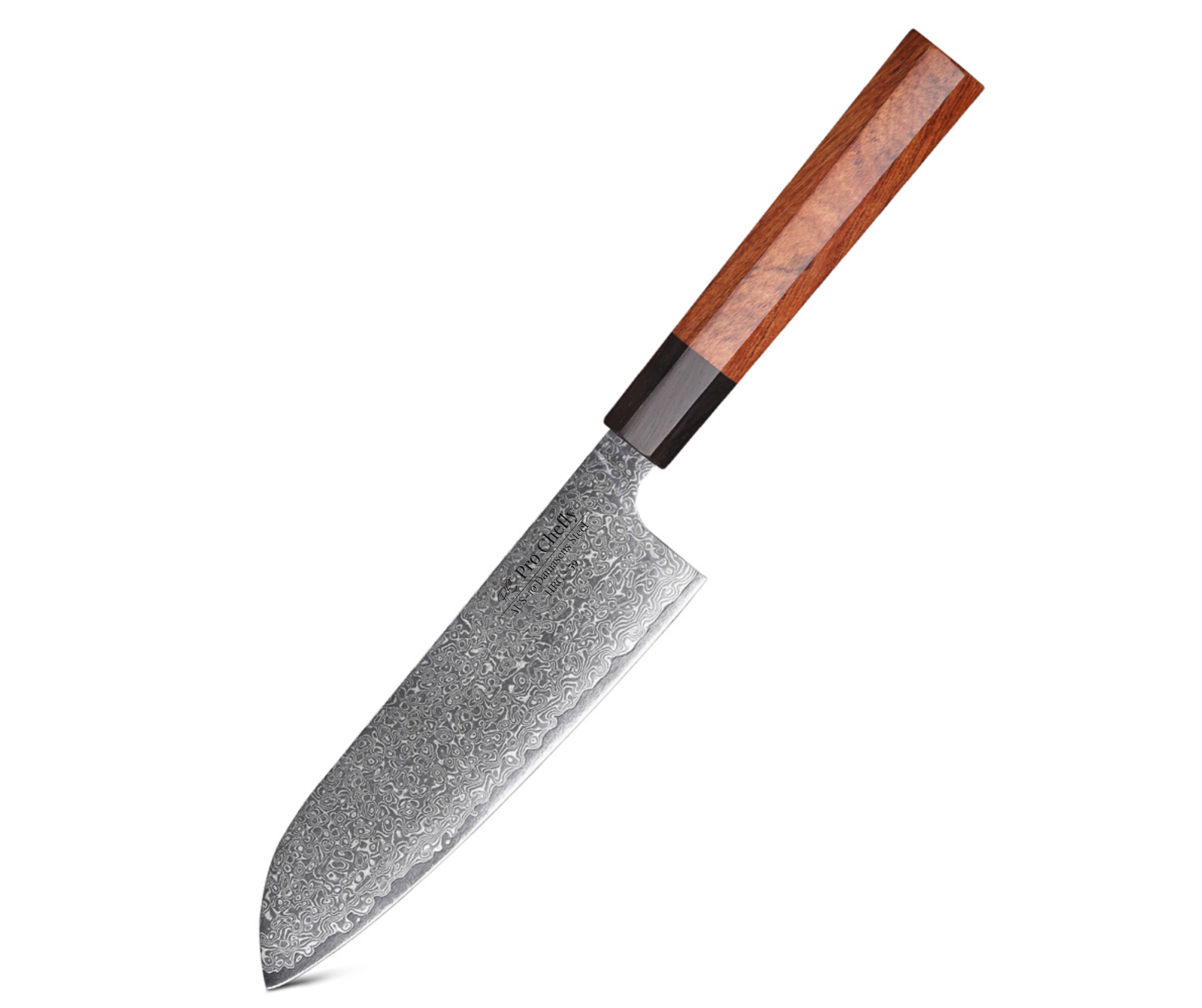Chef’s Overview
Dear Chefs, let’s be honest—nothing kills the joy of cooking faster than a dull knife. That beautiful slice of tomato? Smashed. That delicate onion dice? More like onion massacre. But here’s the good news: sharpening and maintaining your chef knife at home isn’t just possible—it’s essential for keeping your kitchen rhythm alive. Today, I’ll show you how to sharpen, hone, and care for your knives like a pro, while sprinkling in some pro tips along the way. Because a sharp knife isn’t just safer—it’s an extension of your craft.

A Hook and a Story Worth Cutting Into
When I first stepped into professional kitchens, I thought “sharp” meant my knife could make it through a bell pepper without collapsing. Rookie mistake. Real sharpness? That’s when your knife glides through an onion so smoothly you wonder if gravity helped out. I’ll never forget the first time I used a freshly honed 8" VG-10 Damascus Chef Knife—the precision was so shocking I actually laughed mid-slice. And here’s the thing: your knife doesn’t need to live at a sharpening service or wait until it’s painfully dull. With a little knowledge, you can keep that razor’s edge right at home. Think of it like maintaining a cast iron pan—it’s not just upkeep, it’s ritual.
Sharpening vs. Honing: Don’t Confuse the Two
Most chefs mix these up at first. Honing isn’t sharpening—it’s realignment. Imagine your knife’s edge as tiny teeth. Over time, those teeth bend and lean. Honing stands them back up. Sharpening, on the other hand, actually removes metal to create a new edge.
When to Hone
-
Every 2–3 uses
-
Use a honing rod at a 15–20° angle
-
Gentle, alternating strokes—like you’re brushing crumbs off a baguette
When to Sharpen
-
Every 3–6 months (depending on use)
-
Use a whetstone for the most control and precision
-
Start with 1000-grit, finish with 6000–8000 for a polished edge
As we mentioned in Why Every Kitchen Needs a Reliable Chef Knife, a well-kept knife isn’t about showing off—it’s about working smarter, safer, and faster.
Step-by-Step Sharpening at Home
Step 1: Choose the Right Stone
A whetstone is your best friend here. Skip the cheap pull-through gadgets—they eat away at your steel faster than a bad dishwasher habit. Go with a medium/fine grit combo stone.
Step 2: Angle is Everything
Most Japanese steels, like VG-10 or AUS-10, perform best at 15°. Western knives lean closer to 20°. If you’ve read How Does VG-10 Compare to AUS-10 and Other Premium Steels, you’ll know why this matters—edge retention depends on the angle. And if you’ve ever wondered whether to reach for a Santoku or a classic chef’s knife, I broke it down in What’s the Difference Between a Chef Knife and a Santoku Knife, and here’s the spoiler: both deserve proper sharpening to shine.
Step 3: Glide, Don’t Grind
Place the heel of your knife on the stone, apply gentle pressure, and push as though you’re shaving a thin slice off the stone. Do this evenly along both sides. Patience beats speed every time.
Step 4: Test the Edge
Forget paper tests—try slicing a ripe tomato. If it glides without pressure, you nailed it.
Maintaining Your Knife Beyond the Edge
Sharpening is just one part of the equation. True maintenance means treating your knife like it’s a living tool.
Cleaning Matters
Hand wash only. Always. Dishwashers are for forks, not Damascus. That patterned steel—like you’ll see on our 7" VG-10 Damascus Santoku Knife—deserves respect.
Storage Counts
Magnetic strip, wooden block, or blade guards. Never, ever leave it loose in a drawer. That’s how accidents (and dullness) happen.
Oil for Longevity
Especially if you own carbon steel like the 9" Carbon Kiritsuke Knife, a light coat of food-safe oil keeps rust far away.
Wrap-Up With a Twist
Think of your chef knife as a concert violin—it needs tuning, care, and love to sing. When you sharpen at home, you’re not just maintaining steel—you’re nurturing a relationship with the tool that brings your food to life. Dear Chefs, the sharper your blade, the sharper your cooking feels. Now, go give your knife a little spa day—it deserves it.
Knife Collections
Shop the latest in Pro Chefly Damascus Knives
Chef's Notes
Stay up to date with the latest kitchen stories and recipes

- December 05, 2025
Dear Chefs, the holidays deserve a dish that feels slow, soulful, and unforgettable — and few things capture that spirit...

- November 30, 2025
Dear Chefs, there is something unmistakably comforting about bread pudding in November — the way the custard soaks into the...

- November 25, 2025
Dear Chefs, there is something special about roasted carrots in the fall — the way they caramelize, the way their...

- November 20, 2025
Dear Chefs, there is something magical about fall stuffing, especially when pumpkin and sage join the party. The aroma alone...

- November 15, 2025
Dear Chefs, November has a rhythm of its own — a slower pace, a softer light, and a craving for...

- October 31, 2025
Dear Chefs, fall baking is a ritual — the scent of cinnamon in the air, pecans roasting low and slow,...
- Choosing a selection results in a full page refresh.
- Opens in a new window.
